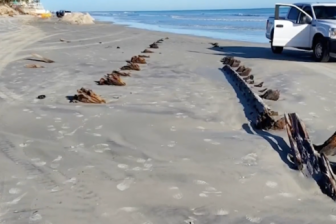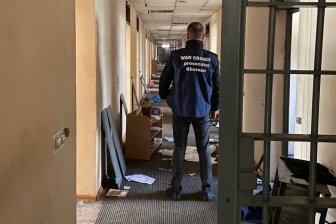Isabelle Weidemann is proud of the state of her Olympic medals.
“Super dipped,” the Canadian speed skater said cheerfully.
Winner of a full set of gold, silver and bronze medals in Beijing in February, the 27-year-old from Ottawa encourages public handling of her hardware.
“I remember seeing Chandra Crawford’s Olympic gold medal a long time ago, maybe 10 years ago. She is a cross-country skier. It was destroyed,” Weidemann told The Canadian Press.
“I thought ‘how can you keep your medal in that condition?’ and now I see mine and I get it. When people want to hold them, and kids drop them, I really don’t care. When I’m old and retired from the sport, I want them to be completely destroyed, because I think that’s the best part of it, being able to share it.”

Weidemann and her Canadian long track teammates are competing at home in the Rugby World Cups, which begin in Calgary on Friday. International racing concludes on Sunday, followed by another three-day World Cup tournament at the Olympic Oval on December 16-18.
Weidemann, Canada’s flag bearer in Beijing’s closing ceremonies, combined with Ottawa’s Ivanie Blondin and Valerie Maltais of La Baie, Que., to win the country’s first gold medal in women’s team pursuit.
Weidemann also claimed silver in the grueling 5,000 meters and bronze in the 3,000 meters.
She was only the third Canadian athlete to win more than two medals at a single Winter Games after speed skaters Cindy Klassen (2006) and Gaetan Boucher (1984).
Read more:
Winnipeg Olympian Susan Auch is out as CEO of Speed Skating Canada
Read more
-
![]()
Winnipeg Olympian Susan Auch is out as CEO of Speed Skating Canada
The start of an Olympic quadrennial is a time of transition for athletes, especially when they have achieved their Olympic dreams. Thoughts and targets change, and the door opens wider to life outside of sport.
“I feel quite a bit different than I did the last quad,” Weidemann said. “I came out of 2018 so excited to do another four years and just grind towards 2022 to be prepared if I could to perform there. It motivated me for four years.
“I came back this year and I knew I had to have different goals. I think I still have quite a few unresolved things that I want to get out of the sport before I move on.”
She will complete her undergraduate science degree by the end of this month. She has applied to medical school and if accepted, Weidemann will follow several Canadian athletes on that path.
Her former speed skating teammate Denny Morrison and Olympic hockey player Claire Thompson were both accepted to the faculties of medicine this year.
Hockey player Hayley Wickenheiser and former Calgary Stampeder quarterback Andrew Buckley both graduated medical school.
Read more:
Canada’s Ivanie Blondin wins silver in mass start speed skating at the Beijing Olympics
Continuing to be tested daily outside of their athletic careers is a draw for the profession, Weidemann believes.
“It’s this intense passion that really draws us to it,” she said. “This drive and this desire to just grind every day, I think we all really like that.”
On the ice, Weidemann is ready to gamble to see how much faster she can get under the guidance of her coach Remmelt Eldering.
Long distance is about pace. Pushing too hard too soon in a 5k runs the risk of “bloating” and slowing to a crawl in the final lap. Weidemann is ready to roll the dice on a post-Olympic season.
“I’ve skated the same times consistently for the past four years and I’ve been on the podium a lot, but I haven’t really skated faster than that,” she said. “I’m really proud of those performances, but I want to see if I can push the next step.
“For four years we had to be very conservative and really make sure that we only hit those consistent times. Now I can take more risks. If it doesn’t work out, it’s not the end of the world.”
Weidemann won 3k bronze and silver in this season’s first two World Cups in Stavanger, Norway and Heerenveen, Netherlands, respectively.
Read more:
Speedskater makes success with mobile cafe
Weidemann, Maltais and Blondin reunited to win the women’s team pursuit in Stavanger.
Speedskaters are constantly looking for a combination of power and fluidity in their stride.
Weidemann would like to hit that sweet spot in Calgary, where she and the rest of the national team train.
“I achieved results in the autumn, in the first two World Cups. I’m happy with how they went,” she said. “However, the feeling was not there. I had a little trouble finding the flow on the ice. I would love to have that feeling here.”
© 2022 The Canadian Press






